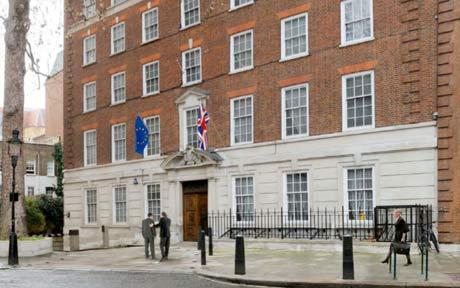
The social-mediatisation of politics
This morning I attended an event about the evolving use of social media in politics at Europe House in Westminster.
Jamie Bartlett from Demos gave an opening talk in which he used the Beppe Grillo movement in Italy as a case study. On the back of a blog set up in 2005 to expose corruption in government (that has since become the most widely read political blog in the world), Beppe Grillo eventually launched a political party in 2009 called the Five Star Movement that uses social media to organise its ground troops and has changed the closed way politicians are selected by instead choosing its candidates online. The result was that thousands of people were willing to go out on streets and work for him and the party built on the distrust of traditional elite to become the second most voted for party at the 2013 general election.
The first panel then discussed the concept of a new politics based on a candidate’s network as opposed to the old politics of a party controlled network. It was highlighted that most MPs on Twitter are boring and don’t engage well, partly because through their controlled selection processes the main parties tend to attract and promote a lot of dull loyalists who do not enthuse the public and also because politicians are still afraid and uncomfortable with these new communication mediums. David Aaronovitch made the point that to “tweet out the party message is death” for a politician and that the most successful online are the ones that are the most authentic and independent of the party machinery. The panel agreed that being amusing was a clear benefit to building an audience and followers, but that politicians shouldn’t force themselves to be funny as being genuine is the key to building trust and likability. Sue Llewellyn summed up that the best way to have an impact was to follow the BBC mission statement to ‘Educate, Inform & Entertain’!
The second panel session explored how social media empowers public organisations to better engage with the public. There were some interesting points made about how officials and the public can use social media together to empower nation branding, cultural promotion and public diplomacy and that the UK should be doing more to capitalise on the dominant use of English online. One of the most notable insights was when the Conservative MEP Charles Tannock disclosed that his party offers its politicians plenty of media and public speaking training but so far no form of social media or online education and guidance! In 2013 I find that quite bizarre and highlights how clueless his party leadership is.
